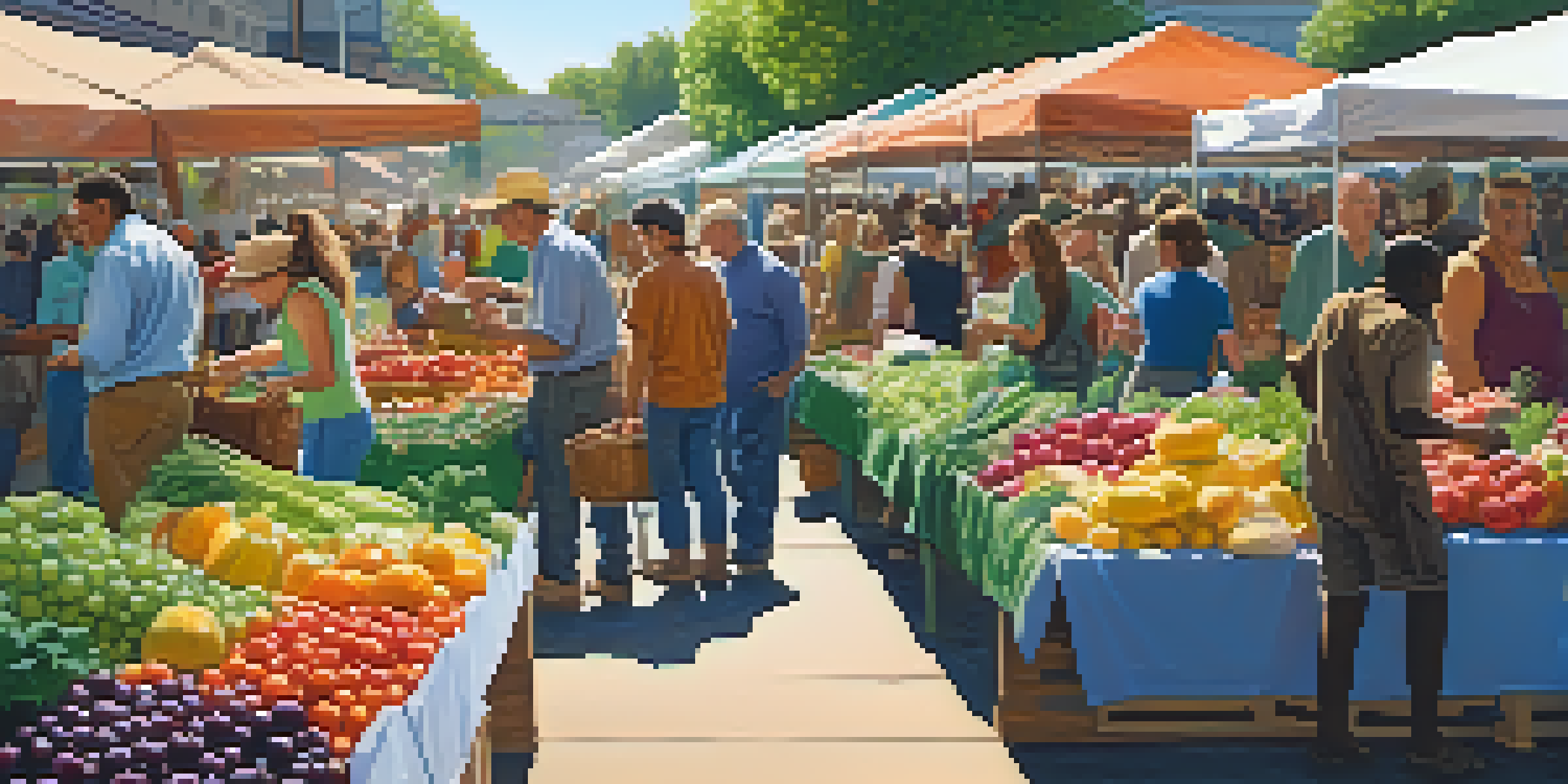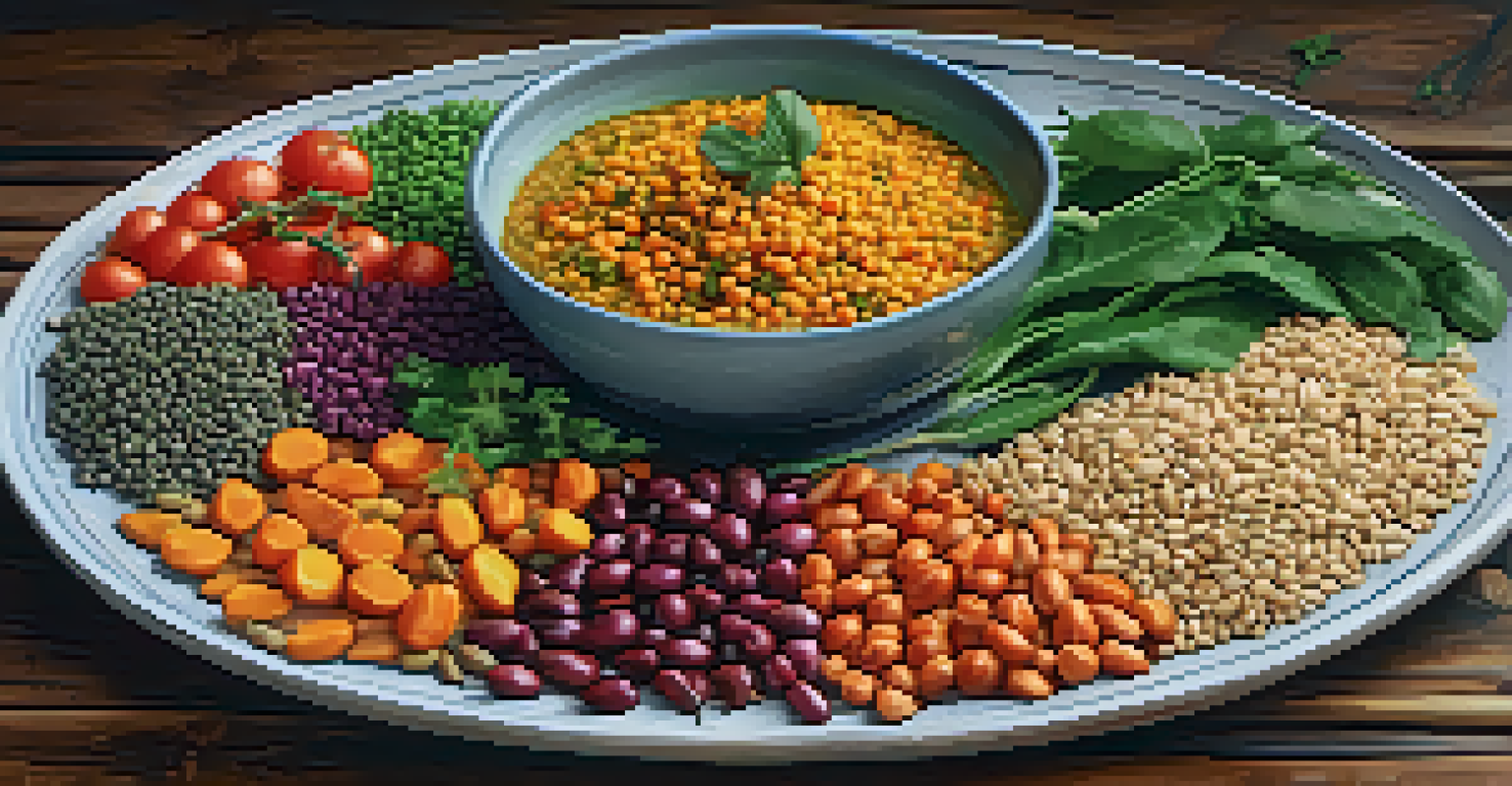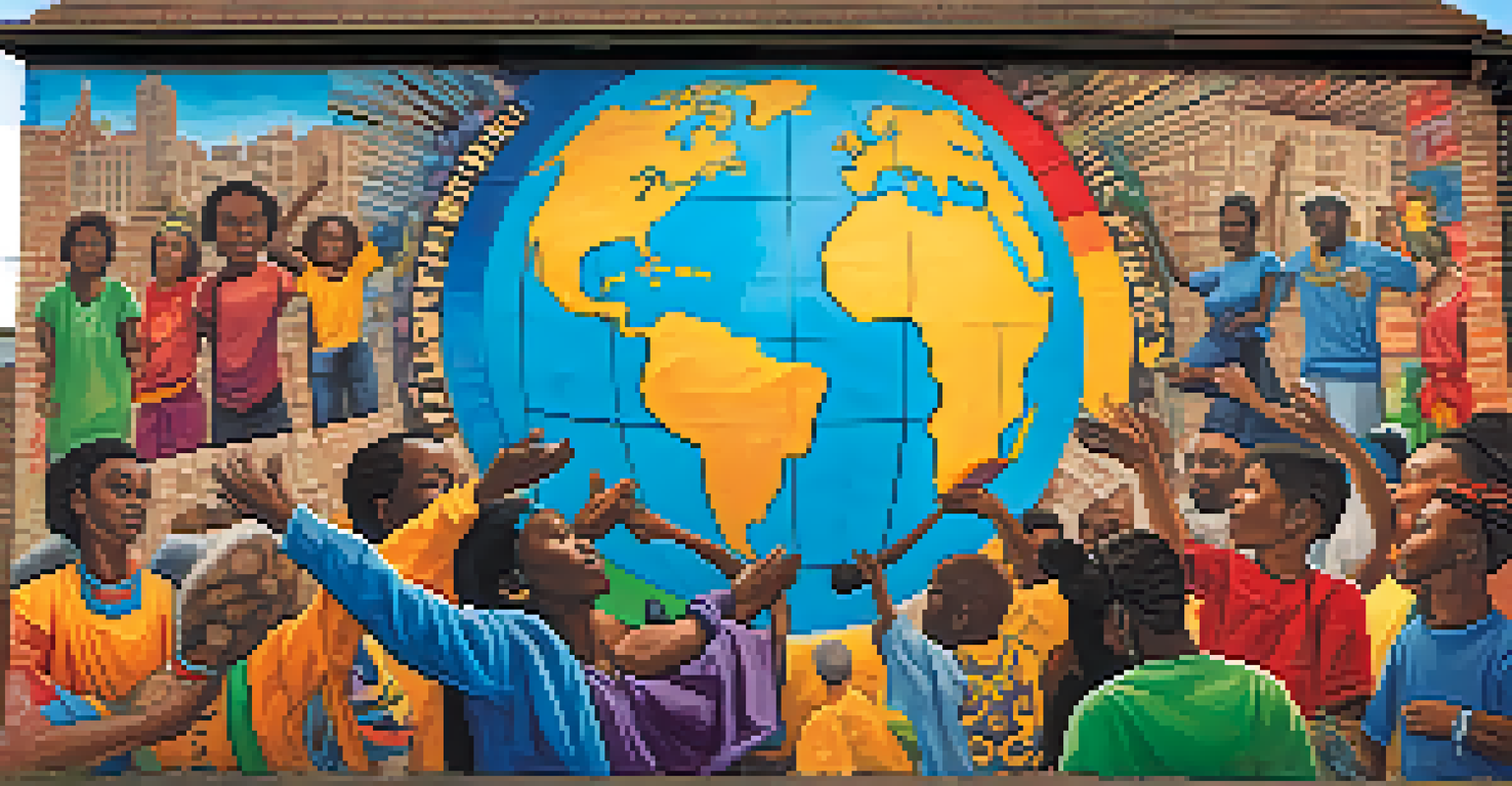Veganism and Racial Justice: A Plant-Based Perspective

Understanding Veganism Beyond Diet: A Holistic Approach
Veganism is often seen merely as a dietary choice, but it encompasses a broader philosophy that advocates for the ethical treatment of all living beings. At its core, veganism seeks to reduce harm and exploitation, which aligns with many principles of social justice. By understanding veganism as a lifestyle, individuals can see how it connects to various social issues, including racial justice.
The food we eat is a reflection of our values and beliefs, and it can be a powerful tool for social change.
Many people of color have historically faced systemic oppression, making the call for justice resonate deeply within their communities. This shared experience of fighting against injustice can foster a strong connection between racial justice and veganism, as both movements advocate for liberation and equality. When one considers the broader implications of their choices, it opens doors to meaningful discussions about intersectionality.
Integrating a plant-based perspective into the fight for racial justice can serve as a powerful tool for advocacy. By promoting veganism, individuals can not only help animals but also challenge the systems that perpetuate inequality and oppression. In this way, veganism becomes a part of a larger movement for social change.
The Historical Context: Racial Justice and Food Systems
To truly understand the connection between veganism and racial justice, it’s essential to look at the historical context of food systems. Many marginalized communities have been disproportionately affected by industrial agriculture, which often exploits labor and destroys local food sovereignty. This exploitation is not just about food; it’s about power dynamics that have persisted for generations.

The colonization of lands and the establishment of factory farming practices often led to the displacement of Indigenous peoples and communities of color. These historical injustices highlight how food production and access are intertwined with issues of race and equality. Recognizing this history allows us to question our current food systems and their impact on diverse communities.
Veganism as a Social Justice Movement
Veganism transcends dietary choices, advocating for the ethical treatment of all beings and connecting deeply with social justice issues, including racial equity.
By advocating for a more equitable food system through veganism, we can address these historical wrongs. Supporting local, sustainable, and ethical food sources not only benefits the environment but also uplifts marginalized communities. This approach helps to dismantle the oppressive structures that have long been tied to our food systems.
Intersectionality: The Overlap of Veganism and Racial Justice
Intersectionality is a vital concept that helps us understand how various forms of discrimination overlap. In the context of veganism and racial justice, it underscores the need to address multiple layers of identity and oppression. This perspective emphasizes that the fight for justice cannot be siloed; rather, it must consider the interconnectedness of issues.
Justice is not a destination, but a journey. It requires constant vigilance and active participation.
For instance, food deserts disproportionately affect communities of color, limiting access to fresh and healthy food options. By advocating for plant-based diets in these areas, we can help combat health disparities while promoting ethical food choices. This highlights how veganism can be a tool for empowerment in marginalized communities, fostering not only health but also economic opportunities.
Moreover, embracing intersectionality in vegan advocacy encourages inclusivity. It allows for diverse voices and experiences to shape the movement, ensuring that it is not just a reflection of one demographic. This collaborative approach enriches the discussion around veganism and racial justice, creating a more holistic understanding of both.
Food Justice: A Shared Goal for Veganism and Racial Equity
Food justice is a movement that seeks to address the inequities in food systems, advocating for access to healthy, affordable food for all. This goal resonates deeply with both veganism and racial justice, as both movements strive to challenge the status quo. By promoting plant-based diets, we can contribute to a more just and equitable food system that benefits everyone.
Communities of color often face barriers to accessing healthy food options, which can lead to health disparities. By supporting local, sustainable agriculture, vegans can help ensure that fresh produce is available to all, regardless of socioeconomic status. This not only enhances community health but also empowers individuals to make informed food choices.
Food Justice and Equity
The fight for food justice aligns with veganism, seeking to ensure equitable access to healthy food for marginalized communities affected by systemic inequities.
By aligning veganism with food justice, advocates can create a powerful narrative that highlights the importance of equitable access. This approach encourages collaboration between various groups, fostering a sense of solidarity in the fight for racial equity and ethical food systems. Together, these movements can work towards a future where everyone has the right to healthy food.
Cultural Perspectives: Veganism in Diverse Communities
Veganism is not a one-size-fits-all approach; it can be influenced by cultural backgrounds and traditions. Many communities of color have rich culinary histories that celebrate plant-based foods, which can be integrated into modern vegan diets. Emphasizing these cultural perspectives can help make veganism more relatable and inclusive.
For example, traditional African and Caribbean cuisines often feature a variety of legumes, grains, and vegetables that align with plant-based eating. By highlighting these connections, advocates can show that veganism doesn’t mean abandoning cultural heritage; rather, it can enhance and celebrate it. This creates a bridge between traditional practices and contemporary dietary choices.
Moreover, recognizing and respecting cultural differences in dietary practices can foster a more inclusive vegan movement. By engaging with and learning from diverse communities, the vegan movement can evolve and become more representative of the populations it seeks to serve. This inclusivity strengthens the overall message of justice and equality within the vegan and racial justice movements.
Activism and Advocacy: Amplifying Voices for Change
Activism plays a crucial role in both veganism and racial justice, as it raises awareness and drives systemic change. By leveraging platforms and resources, advocates can amplify the voices of marginalized communities, ensuring that their concerns are heard. This collaboration is vital for creating a more equitable future.
Engaging in advocacy efforts, such as supporting local farms or participating in awareness campaigns, can create tangible change in communities. By uniting efforts, the vegan movement can work alongside racial justice initiatives, creating a more robust coalition for social change. This solidarity is essential for challenging the structures that perpetuate inequality.
Cultural Inclusivity in Veganism
Acknowledging diverse cultural perspectives in veganism fosters inclusivity and bridges traditional culinary practices with modern plant-based diets.
Additionally, social media has become a powerful tool for activism, allowing individuals to share their stories and connect with like-minded advocates. By using these platforms to highlight the intersection of veganism and racial justice, we can reach wider audiences and inspire collective action. Together, we can create a movement that uplifts all voices and promotes justice.
The Future of Veganism and Racial Justice: A Unified Vision
Looking ahead, the connection between veganism and racial justice presents an opportunity for a unified vision of a more equitable world. By recognizing the intertwined nature of these movements, we can create a more inclusive and compassionate society. This vision calls for collaboration, understanding, and a commitment to justice for all beings.
As more people become aware of the ethical implications of their food choices, the vegan movement can continue to grow and evolve. This growth is essential for fostering a culture of empathy and respect, where the rights of both animals and marginalized communities are prioritized. By working together, advocates can challenge the status quo and push for meaningful change.

Ultimately, embracing a plant-based perspective within the racial justice movement can lead to a more holistic approach to social change. This alignment not only benefits individuals but also strengthens communities, creating a ripple effect of positive impact. Together, we can envision a future where justice, equality, and compassion thrive for all.